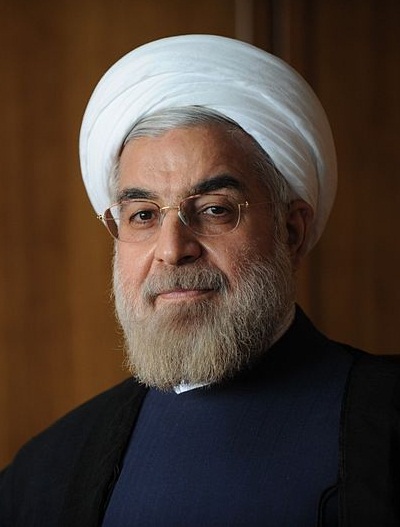By: Cody Furbish
The people of Iran have taken what seems to be a step in the progressive direction by electing the new, moderate, President Hassan Rouhani. Rouhani has promised to draft a civil liberties charter, recover the dragging Iranian economy, and amend foreign relations with Western nations. But how far will Rouhani go, or rather, how far can he go?
 Although he is the President of the Iranian people, he is not the one who has the final say. Ayatollah Ali Khamenei remains the Supreme Leader of Iran, regardless of the presidential election. That means that no matter what Rouhani promises to accomplish, it still has to pass through Khamenei first; and there are no exceptions to that rule.
Although he is the President of the Iranian people, he is not the one who has the final say. Ayatollah Ali Khamenei remains the Supreme Leader of Iran, regardless of the presidential election. That means that no matter what Rouhani promises to accomplish, it still has to pass through Khamenei first; and there are no exceptions to that rule.
Ruhollah Khamenei has been the Supreme Leader of Iran since 1989, after the death of Ayatollah Khomeini (who lead the Iranian Revolution against the Shah of Iran, Mohammed Reza Pahlavi), and has enjoyed boundless public support over the decades since his coming to power.
We know from Khamenei’s past actions, and blatant oppositional statements towards Western culture that he remains abstinent to most forms of negotiation with the U.S., especially regarding the Iran nuclear program. There is no doubt that Khamenei holds lingering distaste for the United States, as he showed support for the Iran hostage crisis in the late 1970s and early ’80s, among other anti-western circumstances. So, if Khamenei remains the Supreme Leader of Iran, an office with a life-long term, does it even matter that the Iranian people elected a moderate to “improve” Iranian-U.S. relations?

(Photo courtesy of Wikimedia Commons)
Taking a look at the newly elected president’s past, an apparent answer may begin to surface as to whether or not he can inspire the Ayatollah to budge on negotiations with the U.S. Though Rouhani is far more liberal than the conservative Khamenei on foreign policy and civil liberties, he remains a longtime follower of the Ayatollah’s practices. Rouhani first began following Ayatollah Khomeini (the first supreme leader, not the current one) in 1965, eventually leading to his exile from Iran prior to the 1979 revolution. Being an ardent follower of the Ayatollah’s cleric preaching and policies, Rouhani was granted several prestigious titles of office following the downfall of the Shah of Iran. Most notable of all the positions that Rouhani held was that as the Representative to the Supreme Leader on the Supreme National Security Council (SNSC).
It is easy to deduce from Rouhani’s past that he will trustfully follow the Ayatollah, regardless of whether or not he is being forced to by the Iranian political system. So although we may all think that Rouhani is a “new moderate leader,” that is simply not the reality of the situation at hand. In the big picture, the Ayatollah has complete command of everything in Iran, and he will not budge on negotiations surrounding Iran’s nuclear ambitions.
I can confidently say that yes, Rouhani will slightly improve diplomacy between Iran and the U.S., but in a very superficial kind of way. Rouhani is far from being the “missing keystone” in Iran-U.S. relations, and as long as Ayatollah Khamenei remains in power that will stay the case.







